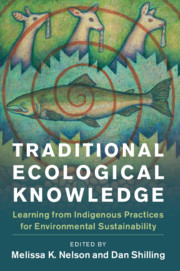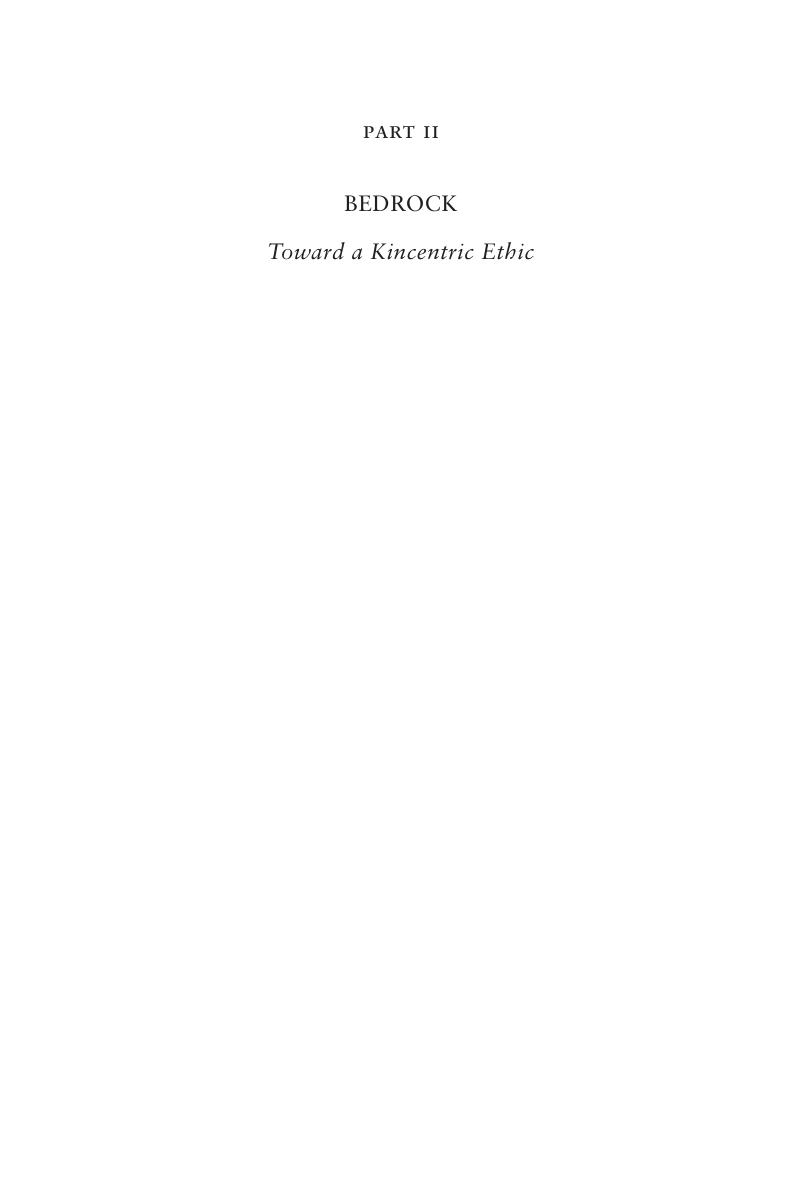 Traditional Ecological Knowledge
Traditional Ecological Knowledge Book contents
- Traditional Ecological Knowledge
- New Directions in Sustainability and Society
- Traditional Ecological Knowledge
- Copyright page
- Contents
- Editors and Contributors
- Preface
- Part I Introduction to Key Concepts and Questions
- Part II Bedrock
- Part III Extended Web
- Part IV Global and Legal Implications of Indigenous Sustainability
- Index
- References
Part II - Bedrock
Toward a Kincentric Ethic
Published online by Cambridge University Press: 21 September 2018
- Traditional Ecological Knowledge
- New Directions in Sustainability and Society
- Traditional Ecological Knowledge
- Copyright page
- Contents
- Editors and Contributors
- Preface
- Part I Introduction to Key Concepts and Questions
- Part II Bedrock
- Part III Extended Web
- Part IV Global and Legal Implications of Indigenous Sustainability
- Index
- References
Summary

- Type
- Chapter
- Information
- Traditional Ecological KnowledgeLearning from Indigenous Practices for Environmental Sustainability, pp. 83 - 136Publisher: Cambridge University PressPrint publication year: 2018


